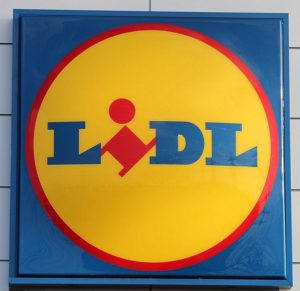SWOT analysis of Lidl (Lidl SWOT)
This is a detailed SWOT analysis of Lidl. It examines the strengths and the weaknesses of Lidl. It also examines the opportunities and the threats facing the company. Lidl is a German discount supermarket, headquartered in Neckarsulm, Germany.
Strengths of Lidl
Lidl is a German grocer. It is now one of the leading food retailers in Europe. It has been in business in the UK for a long time where it is the 6th largest supermarket chain with 7.6% market share (Kantar, 2023). Its market share in Spain is very good. Likewise, it is also one of the strongest supermarket brands in its home market, Germany.

Lidl is one of the fastest growing supermarket chains in the UK. It now has over 960 stores and 13 distribution centres across the country. It has over 10,000 stores across Europe and the USA. It employs over 31,000 people across the United Kingdom (Lidl, 2023).
Lidl is a well-known discounter which enables customers to do a massive weekly shopping with under £30. In fact, it is more than a discounter. It is committed to providing customers with the highest quality products at the lowest possible prices. It also focuses on selling locally produced products. For example, 70% of the company’s products offered in the UK come from British suppliers (Lidl, 2023).
Most of the products sold at Lidl are own-label products. This enables the company to control both the manufacturing and the supply chain costs which eventually results in more profits. Lidl also offers lots of special offers which further saves money for the customers, while increasing the sales volume.
Lidl has won a several awards over the years which attest to its brand name and quality. For example, it won the Retail Industry Awards’ Fresh Produce Retailer of the Year 2021. It also won 10 awards at The Grocer New-Own Label Awards 2021 (Lidl, 2023).
Lidl has achieved economies of scale in its supply chain, sourcing, and marketing activities, which have given it a competitive advantage over some of its competitors. Its stores are typically smaller than traditional supermarkets, allowing it to achieve greater economies of scale by minimising rental costs, real estate investments, and labour expenses.
Lidl has a strong brand image in several European markets, with customers instantly recognizing its logo. It has been able to build its brand image and reputation over decades, establishing itself as a low-cost supermarket chain with a limited selection of products. This has allowed it to differentiate itself from the competitors in a highly competitive industry. Its limited selection of products is a strategic decision to minimise costs and keep prices low for customers.
Weaknesses of Lidl
The discussion on weaknesses is a key part in the SWOT analysis of Lidl. Compared to some other supermarket chains, Lidl has a relatively small number of employees in each store to help customers in product search and address their queries. This is a problem for some customers, as they sometimes need assistance in product-search.
Research into the online reviews shows that many customers are not happy with Lidl’s customer service, and a wide range of products. In fact, majority of reviews fall into the lowest 1 Star Category (Trustpilot, 2023).
Research by Which? (2023) also echoes the same. Most customers were not impressed with the availability and helpfulness of Lidl’s staff. They were also unimpressed with stock availability, range of products, and queuing times.
Lidl’s reputation was at risk due to some controversies over the years. For instance, it was accused of spying on its employees across Germany in the past. Spying included but not limited to recording the number of times employees went to the toilet, and their very personal details. The accusation came from a German news magazine Stern which conducted an investigation in Lidl stores across Germany.
Lidl was also one of the supermarket chains caught up in horse meat scandal in the UK. Poisonous xylene was also found in one of its products sold in the country. These controversies have very negatively impacted on the brand reputation.
Lidl faced challenges in its supply chain in 2021. It saw its shelves of fresh vegetables, bread, toilet roll, any some other products empty as hauliers (people or companies entrusted with transporting goods and materials by road) were “boycotting” it after it had refused to adapt its delivery process in response to the driver shortage in the UK.
The main accusations from hauliers are that the company is less collaborative and rejects lorries that turn up late at distribution centres even though it is very clear that the industry is facing a huge delivery driver shortage (Holmes, 2021).
Opportunities for Lidl
Another key area of examination in the SWOT analysis of Lidl concerns opportunities. Lidl currently has over 12,000 stores in 32 countries. Therefore, growing further in Europe, and other countries has good potentials, and it is feasible as well.
In fact, Lidl is one of the fastest growing supermarket chains in the UK. Its growth potential in the UK is simply great, particularly in the capital, London. It aims to increase the store number to 1,100 in the country by the end of 2025 (Lidl, 2023).
Lidl has great opportunities to grow in the USA. Indeed, it has a plan to open as many as 600 stores in the country. Currently, it has around 300 stores (Smith, 2023). However, it should make cautious steps in the US as some other retailers e.g. Tesco could not do well.
Introducing new products in the market is also worth exploring. Lidl could expand its product line and introduce higher-quality products, including fresh produce and organic foods to win over customers and differentiate itself from the competitors.
Threats to Lidl
Threat is the last issue to address in the SWOT analysis of Lidl. There are a number of competitors challenging Lidl in the UK and other European countries. One of the biggest challengers is Aldi as it is also a discounter. Other competitors in the UK are Tesco, ASDA, Sainsbury’s, and Morrisons to name but a few.
Changes in consumer behaviour, and any political instability in Europe may impact on Lidl significantly. It may sound harsh; however, any increase in minimum wages may also impact on the company’s profits.
Summary of the SWOT analysis of Lidl (Lidl SWOT)
Certainly, Lidl is a great choice for many customers who look for good quality products at affordable prices. It has seen success in many countries. However, it has been unable to replicate its business model in the U.S. where it has struggled against entrenched competitors.
Hope the article has helped you explore the SWOT analysis of Lidl (Lidl SWOT). You may also like reading SWOT analysis of Tesco and Marketing mix of Lidl. Other relevant articles for you are:
Stakeholders of Lidl (Stakeholder analysis)
Last update: 15 September 2023
References:
Holmes, H. (2021) Hauliers ‘boycotting’ Lidl over driver shortage response, available at: https://www.thegrocer.co.uk/lidl/hauliers-boycotting-lidl-over-driver-shortage-response/658016.article (accessed 08 June 2022)
Kantar (2023) Great Britain grocery market share, available at: https://www.kantarworldpanel.com/en/grocery-market-share/great-britain (accessed 15 September 2023)
Lidl (2023) About Us, available at: https://www.lidl.co.uk/about-us (accessed 15 September 2023)
Smith, P. (2023) Number of Lidl stores in the U.S., available at: https://www.statista.com/statistics/727606/lidl-number-of-stores-us/ (accessed 15 September 2023)
Trustpilot (2023) Lidl, available at: https://uk.trustpilot.com/review/www.lidl.co.uk (accessed 15 September 2023)
Which? (2023) Lidl review, available at: https://www.which.co.uk/reviews/supermarkets/article/best-and-worst-supermarkets/lidl-review-aAPFx3Z7p7aQ (accessed 14 September 2023)
Author: M Rahman
M Rahman writes extensively online and offline with an emphasis on business management, marketing, and tourism. He is a lecturer in Management and Marketing. He holds an MSc in Tourism & Hospitality from the University of Sunderland. Also, graduated from Leeds Metropolitan University with a BA in Business & Management Studies and completed a DTLLS (Diploma in Teaching in the Life-Long Learning Sector) from London South Bank University.


